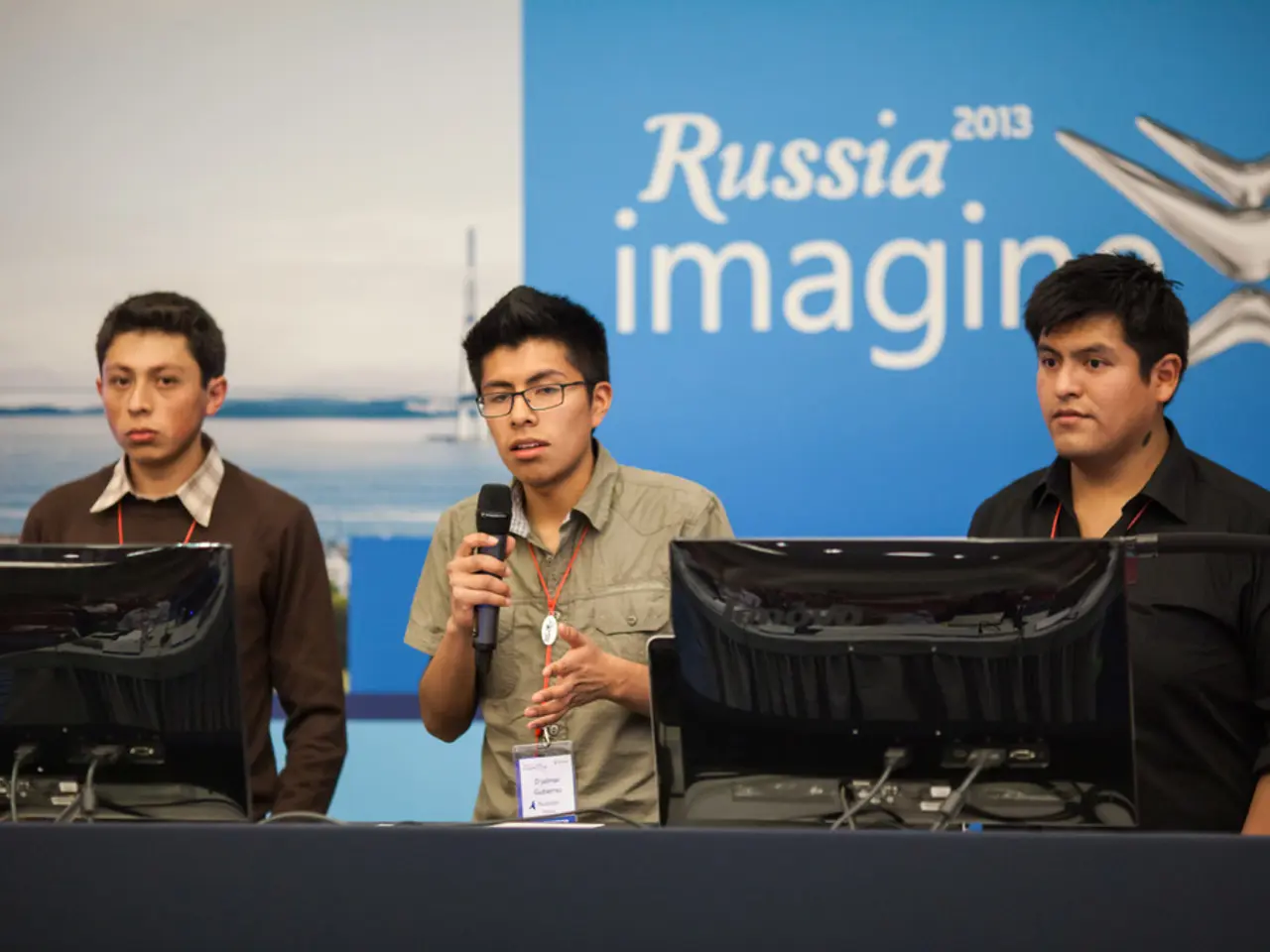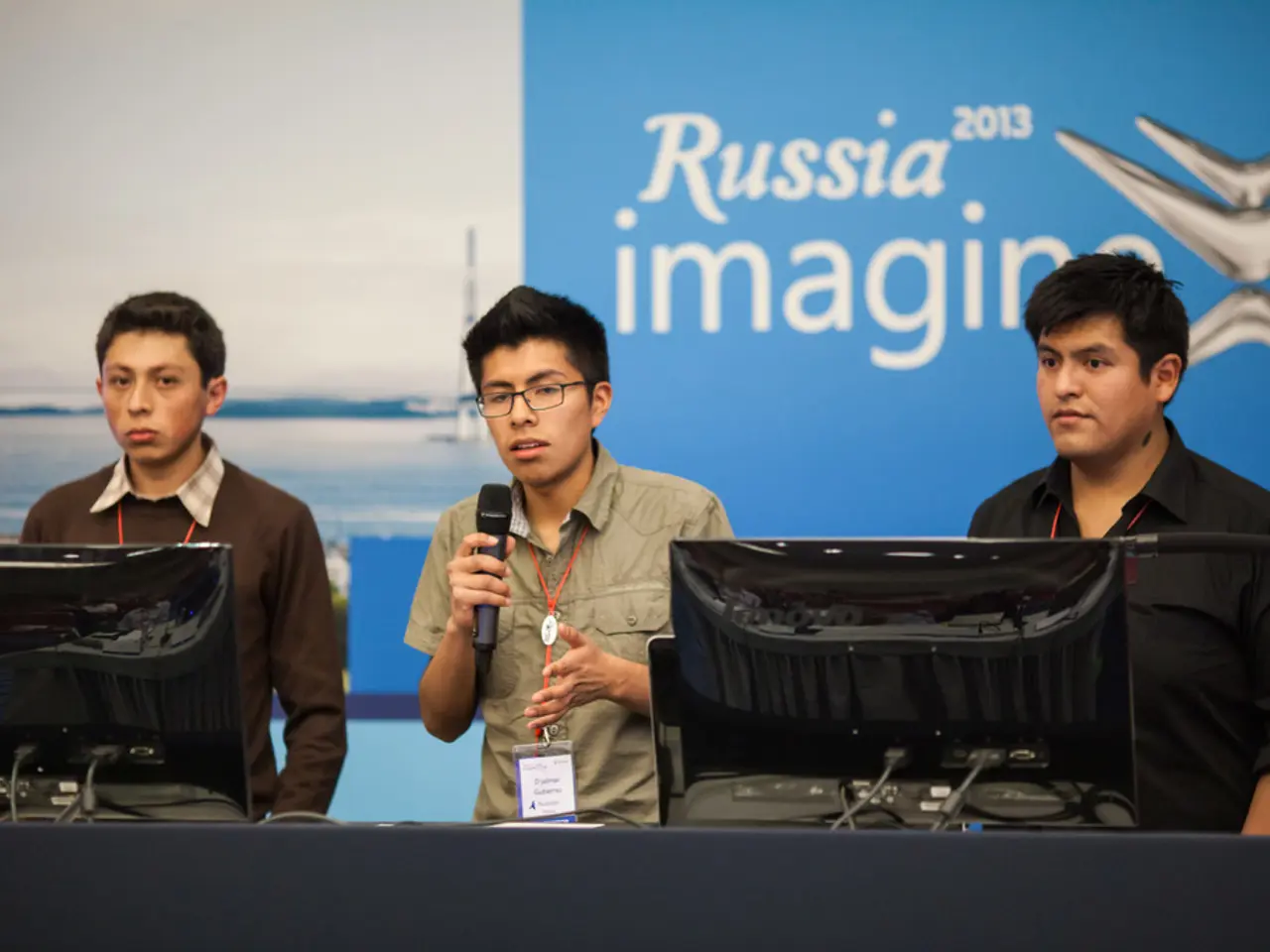The equivalent phrase in Belarus for the Tomahawk Missile deployment in Germany is "Oрешник". Investigation into whether the collapsing INF Treaty is a case of treason and its implications.
Russia's decision to withdraw from the Intermediate-Range Nuclear Forces (INF) Treaty marks a significant deterioration in post-Cold War arms control and escalates global security risks[1][2]. This move, effective on August 4, 2025, follows the U.S.'s withdrawal in 2019, prompted by allegations of Russian violations of the treaty[1][4][5].
The INF Treaty, a pioneering 1987 agreement, eliminated an entire class of nuclear weapons and drastically reduced regional tensions in Europe[2]. Its demise undermines decades of mutual arms control agreements, threatening the stability of other pacts like New START, which is also nearing expiration[3].
The implications for Russia-US relations and global security are profound:
- Breakdown of Arms Control Architecture: The treaty's demise undermines decades of mutual arms control agreements, threatening the stability of other pacts like New START, which is also nearing expiration[3].
- Increased Nuclear Risks: Deployment of nuclear-capable intermediate-range missiles shortens response times and increases risks of miscalculation or accidental nuclear conflict between Russia, the U.S., and NATO[3].
- Heightened NATO Security Concerns: Russian missiles deployed in regions such as Kaliningrad and Belarus place major NATO cities in Eastern and Central Europe within striking range, forcing NATO to reevaluate its defense postures and threatening alliance cohesion[3][5].
- Regional Destabilization: Frontline states like Ukraine, Poland, and the Baltic countries face heightened threats, exacerbated by Russia's demonstrated willingness to use intermediate-range missiles in active conflict zones, notably Ukraine[3][4].
- Global Strategic Uncertainty: Russia justifies its withdrawal citing perceived threats from U.S. missile deployments in Europe and Asia, fueling a narrative that could lead to more missile deployments, including in sensitive areas like Crimea and the Far East, thereby increasing global tensions[2][3][5].
In response to the US's actions, Russia has developed new hypersonic missile systems not covered by the INF Treaty, including the "Oreshnikov" series, which reaches speeds up to 10 Mach (around 12,400 km/h)[6]. Meanwhile, the US continues to deploy missile defense stations in Europe, develop new ballistic and cruise missiles, and build launch sites suitable for both conventional and nuclear missiles[7].
The US has announced plans to permanently deploy ground-based missiles of intermediate and shorter range in Germany, starting from January 2026[8]. This decision, coupled with the distance from Gomel to Ramstein (the main US and NATO military base in Germany), which is slightly over 1500 kilometers, raises concerns about a potential arms race and increased regional tensions[9].
The INF Treaty was intended to reduce the likelihood of nuclear war between superpowers[10]. Its collapse signifies a shift toward a new era of arms competition and geopolitical mistrust, complicating diplomacy and heightening the risks of regional and potentially global conflict[2][3].
References:
[1] BBC News (2021). Russia to withdraw from INF Treaty after US exit. [online] Available at: https://www.bbc.com/news/world-europe-55873074
[2] Carnegie Endowment for International Peace (2021). The INF Treaty's Demise: What It Means for Stability and Arms Control. [online] Available at: https://carnegieendowment.org/2021/08/06/inf-treaty-s-demise-what-it-means-for-stability-and-arms-control-pub-84935
[3] Council on Foreign Relations (2021). INF Treaty: What Is It and Why Does It Matter? [online] Available at: https://www.cfr.org/backgrounder/inf-treaty-what-it-and-why-does-it-matter
[4] The Guardian (2019). US withdraws from INF treaty on Russian missile claims. [online] Available at: https://www.theguardian.com/world/2019/aug/02/us-withdraws-from-inf-treaty-on-russian-missile-claims
[5] NATO (2021). Russia's Withdrawal from the INF Treaty: What It Means for NATO. [online] Available at: https://www.nato.int/cps/en/natohq/topics_112465.htm
[6] TASS (2021). Russia's Oreshkov hypersonic missile to reach speeds up to 10 Mach. [online] Available at: https://tass.com/defense/1238582
[7] Arms Control Association (2021). U.S. Missile Deployment Plans and the INF Treaty. [online] Available at: https://www.armscontrol.org/act/2021-08/news/us-missile-deployment-plans-and-inf-treaty
[8] Defense News (2021). US to deploy ground-based missiles in Germany starting in 2026. [online] Available at: https://www.defensenews.com/global/europe/2021/06/18/us-to-deploy-ground-based-missiles-in-germany-starting-in-2026/
[9] Deutsche Welle (2021). US missile deployment in Germany: What you need to know. [online] Available at: https://www.dw.com/en/us-missile-deployment-in-germany-what-you-need-to-know/a-58916573
[10] National Security Archive (2021). The INF Treaty: A Brief History. [online] Available at: https://nsarchive.gwu.edu/briefing-book/brief-book-excerpts/2018-10-01/inf-treaty-brief-history
- Rise in Global Policy and Legislation Changes: The collapse of the INF Treaty could potentially lead to changes in policy and legislation related to war and conflicts, as countries scramble to ensure their national security in this new arms race era.
- Shift in Political Landscape: The deterioration in post-Cold War arms control and the rising security risks due to Russia's withdrawal from the INF Treaty underscores the political implications, heightening the importance of general news and international dialogues in shaping foreign relations and global stability.






